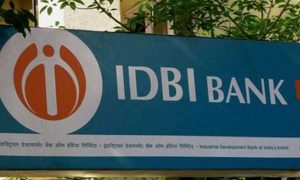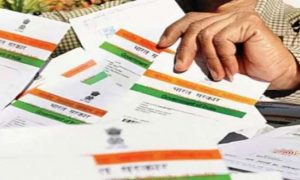The Reserve Bank of India has imposed certain restrictions on Paytm Payments Bank of India, which will bar the platform from onboarding new customer, and limit existing customers from sending or receiving money from their savings accounts after February 29. Here is the full story in 5 points.
Also Read– Budget 2024: Income Tax Slabs, New vs Old Regime Compared For You
After an alleged “persistent non-compliance”, the Reserve Bank of India (RBI) on Thursday imposed a set of restrictions on Paytm Payments Bank that will come into effect on February 29. The restrictions will affect fresh deposits and credit transactions on the platforms. The new rule may also not allow new users from creating an account on the platform. From what RBI’s press release on the matter suggests, Paytm wallets of all users will be affected, and so will be Paytm Fastags and mobility cards.
Early on 1 Feb, Paytm Payments Bank Limited has also responded to the statement saying, “PPBL is taking immediate steps to comply with RBI directions, including working with the RBI to address their concerns as quickly as possible.”
Also Read– Budget 2024: 30 Crore Loans Under PM Mudra Yojana Given To Women Entrepreneurs, says FM
The company has also announced that One97 Communications Limited (OCL), going forward, will only work with other banks and will stop working with Paytm Payments Bank. “OCL, as a payments company, works with various banks (not just Paytm Payments Bank), on various payments products. OCL started to work with other banks since starting of the embargo. We now will accelerate the plans and completely move to other bank partners. Going forward, OCL will be working only with other banks, and not with Paytm Payments Bank Limited. The next phase of OCL’s journey is to continue to expand its payments and financial services business, only in partnerships with other banks,” the company said in its press release.
“Depending on the nature of the resolution, the Company expects this action to have a worst case impact of Rs. 300 to 500 crores on its annual EBITDA going forward. However, the Company expects to continue on its trajectory to improve its profitability,” Paytm claims.
But what does this mean for you? Here is the story in five points:
–After February 29, Paytm Payments Bank will not be onboarding new users. Which means, if you aren’t already a Paytm user, after the mentioned date, you will not be able to set up a new account on the platform. As for existing users, they will not be able to use their Paytm wallets, Paytm Fastags, or Mobility Cards. Mobility cards are basically transit cards that can be used for paying of shopping bills, parking fees, ATM withdrawals, metro and bus rides, fuel or food bills, and more.
However, as per a recently issued statement by Paytm, its existing users will continue to use the platforms payments solutions, and its offline services will also be available, post Feburary 29. “The Paytm Payment Gateway business (online merchants) will continue to offer payment solutions to its existing merchants. OCL’s offline merchant payment network offerings like Paytm QR, Paytm Soundbox, Paytm Card Machine, will continue as usual, where it can onboard new
offline merchants as well,” Paytm said in its press release.

–Paytm will also not be allowed to accept any new deposits after February 29. So, whatever funds you want to add to your Paytm Payments Bank, you can only do so until the last day of Feb. Post that day, you will not be able to add any money to the savings account.
Also Read– Flipkart to start delivering products on same day of ordering but there’s a catch
Although OCL says that its services like insurance distribution and loans, will be unaffected by the move. “OCL’s other financial services such as loan distribution, insurance distribution and equity broking, are not in any way related to Paytm Payments Bank Limited and are expected to be unaffected by this direction,” says Paytm.
–The central bank has also said that neither debit nor credit transactions, including those through wallets, will be permitted. However, customers are allowed to withdraw without any restrictions, as per the announcement. Basically, you will neither receive, nor be able to send any money from your account, but whatever balance money you have in your Paytm account, you will be able to access and withdraw that money.
“No further deposits or credit transactions or top ups shall be allowed in any customer accounts, prepaid instruments, wallets, FASTags, NCMC cards, etc. after February 29, 2024, other than any interest, cashbacks, or refunds which may be credited anytime.”
Read More: These 6 focused mutual funds delivered over 18% CAGR returns in the past five years
–The Reserve Bank of India has also said that after February 29, the bank should not offer any other services such as fund transfers (regardless of the type of services like AEPS, IMPS, etc.), bill payments, or UPI facilities. This means that you will not be able to make any money transfer or bill payments or UPI transactions using Paytm services after the said date.
–Also to be clear, the move targets Paytm’s banking operations but it does not mention if transactions made via external banks will also be affected. Meaning, you may be able to make UPI payments through Paytm as long as it is connected to an external account. However, considering Paytm Wallet is powered by Paytm Payments Bank, you may still not be able to use Paytm Wallet. “The RBI’s move primarily targets Paytm’s banking operations, allowing customers to still utilise Paytm for digital payments as long as their account remains connected to an external bank, even after February 29,” explains Gaurav Goel, Founder-Director, Fynocrat Technologies.
However, this adds a little more confusion to the situation considering that UPI is also powered by Paytm Payments Banks, so should that not be affected too post February 29. This may become more clear when Paytm releases an official statement. We have also reached out to Paytm to understand this better. We will update this space as soon as we hear from them.

The RBI also requires that all nodal accounts of One97 Communications Ltd and Paytm Payments Services Ltd should be terminated at the earliest. This basically suggests that Paytm’s parents company and the Payments Bank services will not be able to make any transactions from its own nodal accounts either. The RBI (Reserve Bank of India) introduced Nodal Accounts as a requirement for intermediaries like aggregators, e-commerce platforms, and payment gateways. The purpose is to make sure that the payments collected from customers are released to vendors promptly and without any unnecessary delays.
The restriction on Paytm Payments Bank was revealed in an audit report released by the RBI, which said that the action is being taken after “persistent non-compliances and continued material supervisory concerns in the bank, warranting further supervisory action”. For the uninitiated, Paytm Payments Bank or PPBL is a digital banking service providing banking facilities and savings account options. Established in 2017, it is an extension of Paytm. Authorised by the Reserve Bank of India (RBI) to operate as a payments bank, PPBL officially started offering its services in November 2017.



































